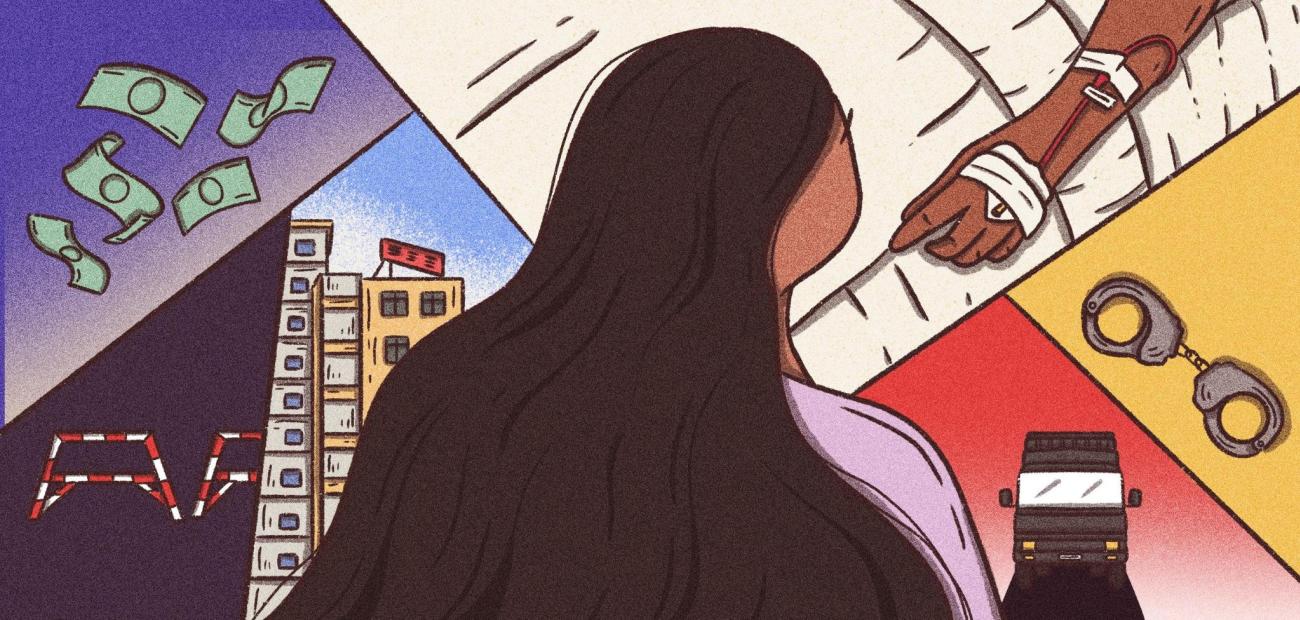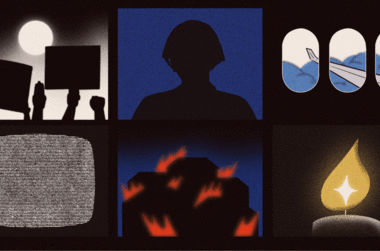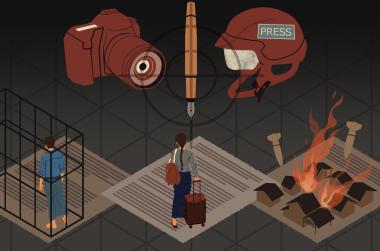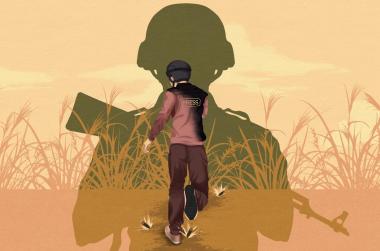The author is a journalist from Shan State and they are receiving support from The Kite Tales to write these diaries. This story is based on a series of online interviews with a young Myanmar woman who had been working in China.
*Name changed to protect identity.
For two years Hnin Si* has been working in a city in China’s industrial Pearl River Delta region, having left Myanmar to earn a living like so many other intrepid young Burmese people. But when her father fell ill she decided to return home urgently.
The journey snakes across southern China’s Yunnan Province before crossing the frontier into war ravaged northern Myanmar and heading southwest into Sagaing region. On the way out of Myanmar she had travelled for a week, going home took four months.
This is her story.
Hnin Si heard that her father was very ill and she knew that she needed to get home quickly.
“I was told he was asking for me.”
This was October 2022, when China was under a strict Zero Covid-19 policy, meaning she was not officially allowed to plan her own travel. But if she applied for permission from the local police, she knew she would be delayed. She decided to take a risk and dodge Chinese law enforcement.
A travel broker arranged the trip and when it came to make the journey on a late autumn day, Hnin Si found herself among a group of 21 people leaving the city to head back to Myanmar.
The voyage started promisingly. But after nearly 24 hours on the bus the brokers dumped them unceremoniously in a remote village far from Yunnan instead of taking them all the way into Myanmar.
“It was cold and there was nowhere for us to go or stay,” Hnin Si said.
“We did not know how to continue our journey, so we ended up calling the police and asking for help.
“After a while two people turned up with two vans, telling us to come along. They took us to a village near the highway and deposited us on the side of the road with our luggage and drove away.
“Eventually we called the Burmese embassy for help, who said they would come. But when it started to get dark and no one had arrived we called them again and they said it was too far for them in the end. There was nothing to eat but we also didn’t know if we were hungry or not because we were so worried about finding transport.
“As the evening fell, the police finally came and took us to the police station. They tested us for Covid-19. We were told to wear PPE suits and then taken to a hotel and each given a room. They confiscated ID cards and phones, but luckily for me, they didn’t take my phone. Perhaps they forgot. It was by God's grace.
“After three days in the hotel we were taken to the city police station and the 11 women in the group were put in one cell and ten men were locked in another. There was no bedding or blankets. The next day, we asked them to give us some gunny sacks they had at the station to sleep on.”
“They fingerprinted us. They took details of our height, weight, eyes, elbows, feet, everything. They also asked us to read essays in Burmese out loud.
“The day after, we were interrogated one by one. Who sent us here? The driver, the license plate. Who was our host? The name of the company. They wanted all the details and recorded it all. It took about an hour.
“I lied as much as I could and as plausible as I could. They questioned us again the next day, and I had to remember what I said previously. They asked in so many different ways.”
“Another day they took us to the hospital to do a full check-up: x-ray, blood tests, urine tests, all sorts of checks.
“After about a week at the police station, they confiscated our luggage. Then we didn’t have anything with us - no underwear or even toothpaste. Me and two others decided to conceal our phones so they could not be taken.
“One day in the middle of October, they took us all to a building that resembled a prison. We weren’t allowed to take anything inside with us - phones, cash - we had to put in a plastic bag and leave it in the car.
“Once inside, they divided us into four groups and ordered us to strip. At least the women could still wear panties. The boys had to take off everything. They cut the zippers from shirts and threw away shoes and bras. We only had a single outfit for ourselves but girls could not wear bras. We were then assigned two people per room and given a bar of soap, toilet paper, a blanket, and a pair of slippers.
“You sleep and eat in the room. You also go to the toilet in the room. We get water and rice from a hole about one foot wide.
“Later we discovered that this was not in fact a prison, but a quarantine facility. We had to stay there for another 10 days and they checked for covid daily. In the mornings, we had boiled rice without any other ingredients. At noon and in the evening, rice and some sort of curry. I lost weight.
“After that we were finally transported to Yunnan. But when we arrived six of us, including me, had somehow caught covid.
'So we were sent to another hotel and were there for many many days. At least we didn’t have to pay. But you can't go out at all.
“Ultimately, it took me four months and three days to arrive at the border of Myanmar. Those days were full of sleepless nights and filled with fear and anxiety.
“My father was in the hospital for almost a month. My mother is old and there is no money so I went back to help care for them,” she said.
“I know that crossing the border to China without a visa in my passport is not good, but I have to support my family, who struggled to feed themselves.
“It’s not because I’m brave that I went to work in a faraway place. It’s because our situation made it necessary.”
Artwork by JC who is receiving support by The Kite Tales to produce illustrations.





